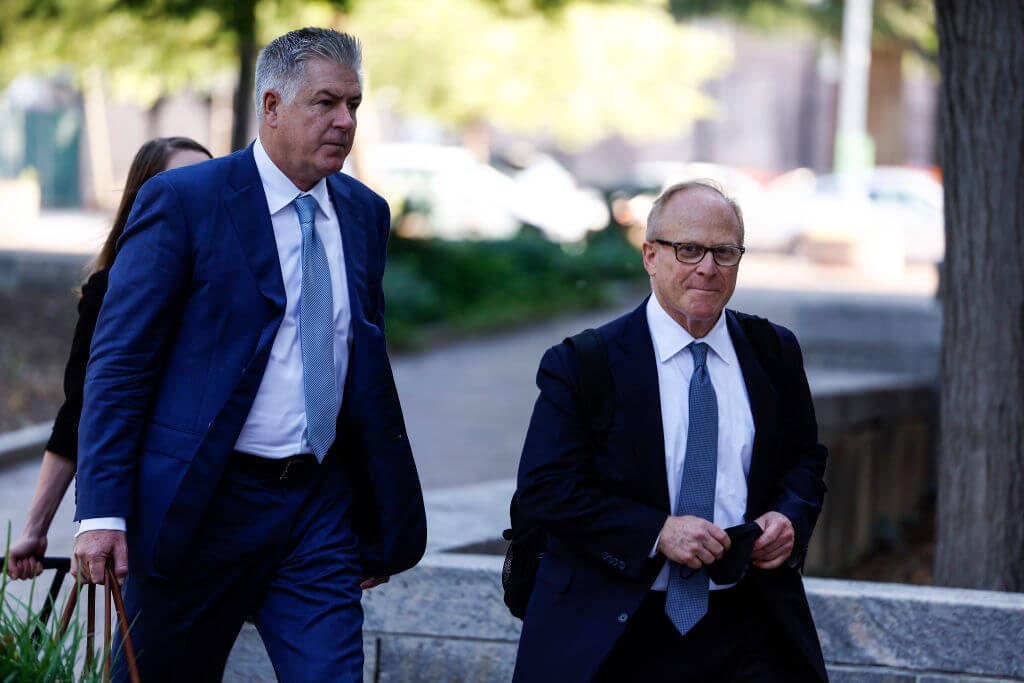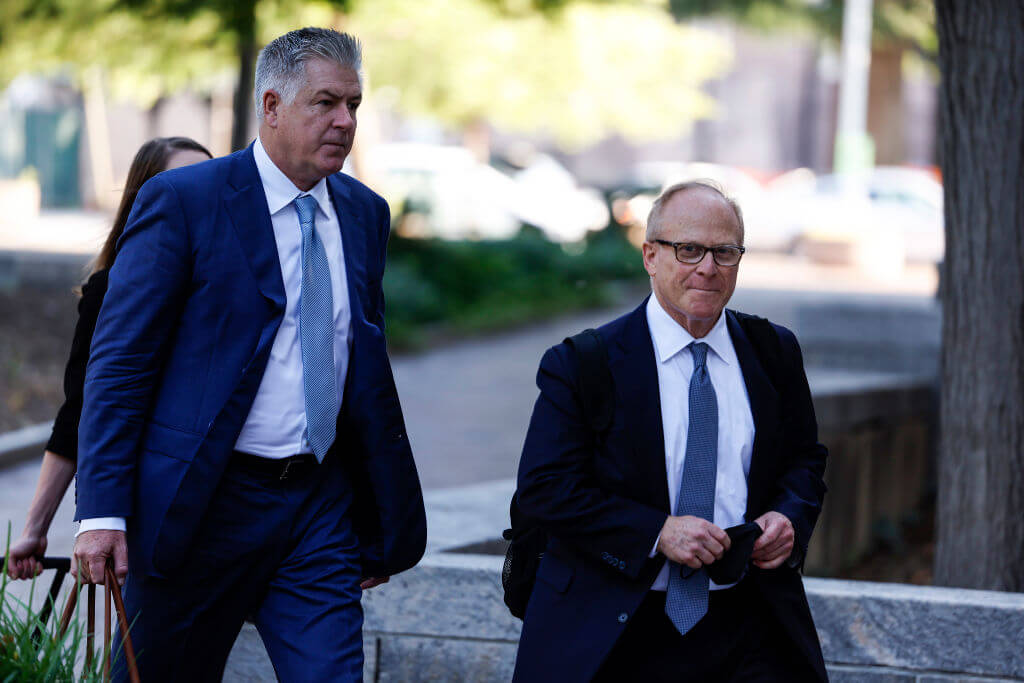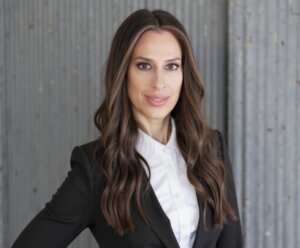Uncategorized
From ‘how to’ to ‘why bother?’: Michael Strassfeld writes a new guide to being Jewish
(JTA) — “What the son wishes to forget the grandson wishes to remember.” That’s known as Hansen’s Law, named for the historian Marcus Lee Hansen, who observed that while the children of immigrants tend to run away from their ethnicity in order to join the mainstream, the third generation often wants to learn the “old ways” of their grandparents.
In 1973, “The Jewish Catalog” turned Hansen’s Law into a “do-it-yourself kit” for young Jews who wanted to practice the traditions of their grandparents but weren’t exactly sure how. Imagine “The Joy of Cooking,” but instead of recipes the guide to Jewish living had friendly instructions for hosting Shabbat, building a sukkah and taking part in Jewish rituals from birth to death. Co-edited by Michael Strassfeld, Sharon Strassfeld and the late Richard Siegel, it went on to sell 300,000 copies and remains in print today.
Fifty years later, Rabbi Michael Strassfeld has written a new book that he calls a “bookend” to “The Jewish Catalog.” If the first book is a Jewish “how to,” the latest asks, he says, “why bother?” “Judaism Disrupted: A Spiritual Manifesto for the 21st Century” asserts that an open society and egalitarian ethics leave most Jews skeptical of the rituals and beliefs of Jewish tradition. In the face of this resistance, he argues that the purpose of Judaism is not obedience to Torah and its rituals for their own sake or mere “continuity,” but to “encourage and remind us to strive to live a life of compassion, loving relationships, and devotion to our ideals.”
Strassfeld, 73, grew up in an Orthodox home in Boston and got his master’s degree in Jewish studies at Brandeis University. Coming to doubt the “faith claims” of Orthodoxy, he became a regular at nearby Havurat Shalom, an “intentional community” that pioneered the havurah movement’s liberal, hands-on approach to traditional practice. He earned rabbinical ordination from the Reconstructionist Rabbinical College when he was 41 and went on to serve as the rabbi of Congregation Ansche Chesed on the Upper West Side and later the Society for the Advancement of Judaism, the Manhattan flagship of Reconstructionist Judaism.
“To be disrupted is to experience a break with the past and simultaneously reconnect in a new way to that past,” writes Strassfeld, who retired from the pulpit in 2015. This week, we spoke about why people might find Jewish ritual empty, how he thinks Jewish practices can enrich their lives and how Passover — which begins Wednesday night — could be the key to unlocking the central idea of Judaism.
Our conversation was edited for length and clarity.
Jewish Telegraphic Agency: I wanted to start with the 50th anniversary of the “Jewish Catalog.” What connects the new book with the work you did back then on the “Catalog,” which was a do-it-yourself guide for Jews who were trying to reclaim the stuff they either did or didn’t learn in Hebrew school?
Michael Strassfeld: I see them as bookends. Basically, I keep on writing the same book over and over again. [Laughs] Except no, I’m different and the world is different. I’m always trying to make Judaism accessible to people. In the “Catalog” I was providing the resources on how to live a Jewish life when the resources weren’t easily accessible.
The new book is less about “how to” than “why bother?” That’s the challenge. I think a lot of people take pride in being Jewish, but it’s a small part of their identity because it doesn’t feel relevant. I want to say to people like that that Judaism is about living a life with meaning and purpose. It’s not about doing what I call the “Jewishly Jewish” things, like keeping kosher and going to synagogue. Judaism is wisdom and practices to live life with meaning and purpose. The purpose of Judaism isn’t to be a good Jew, despite all the surveys that give you 10 points for, you know, lighting Shabbat candles. It’s about being a good person.
So that brings up your relationship to the commandments and mitzvot, the traditional acts and behaviors that an Orthodox Jew or a committed Conservative Jew feels commanded to do, from prayer to keeping kosher to observing the Sabbath and the holidays. They might argue that doing these things is what makes you Jewish, but you’re arguing something different. If someone doesn’t feel bound by these obligations, why do them at all?
I don’t have the faith or beliefs that underlie such an attitude [of obligation]. Halacha, or Jewish law, is not in reality law. It’s really unlike American law where you know that if you’re violating it, you could be prosecuted. What I’m trying to do in the book is reframe rituals as an awareness practice, that is, bringing awareness to various aspects of our lives. So it could be paying attention to food, or cultivating attitudes of gratitude, or generosity, or satisfaction. My broad understanding of the festival cycle, for example, is that you can focus on those attitudes all year long, but the festivals provide a period of time once in the year to really focus on, in the case of Rosh Hashanah and Yom Kippur, for example, saying sorry and repairing relationships.
In “Judaism Disrupted: A Spiritual Manifesto for the 21st Century,” Michael Strassfeld argues that the challenge of each generation’s Jews is to create the Judaism that is needed in their time. (Ben Yehuda Press)
Passover is coming. Probably no holiday asks its practitioners to do so much stuff in preparation, from cleaning the house of every trace of unleavened food to hosting, in many homes, two different catered seminars on Jewish history. Describe how Passover cultivates awareness, especially of the idea of freedom, which plays an important part thematically in your boo
The Sefat Emet [a 19th-century Hasidic master] says Torah is all about one thing: freedom. But there’s a variety of obstacles in the way. There are temptations. There’s the inner issues that you struggle with, and the bad things that are out of your control. The Sefat Emet says the 613 commandments are 613 etzot, or advice, that teach us how to live a life of freedom. The focus of Passover is trying to free yourself from the chains of the things that hold you back from being the person that you could be, not getting caught up in materiality or envy, free from unnecessary anxieties — all these things that distract us or keep us from being who we could be.
The Passover seder is one of the great rituals of Judaism. We’re trying to do a very ambitious thing by saying, not, like, “let’s remember when our ancestors were freed from Egypt,” but rather that we were slaves in Egypt and we went free. And at the seder we actually ingest that. We experience the bitterness by eating maror, the bitter herb. We experience the freedom by drinking wine. We don’t want it just to be an intellectual exercise.
Unfortunately the seder has become rote. But Passover is about this huge theme of freedom that is central to Judaism.
I think some people bristle against ritual because they find it empty. But you’re saying there’s another way to approach rituals which is to think of them as tools or instruments that can help you focus on core principles — you actually list 11 — which include finding holiness everywhere, caring for the planet and engaging in social justice, to name a few. But that invites the criticism, which I think was also leveled at the “Catalog,” that Judaism shouldn’t be instrumental, because if you treat it as a means to an end that’s self-serving and individualistic.
Certainly rituals are tools, but tools in the best sense of the word. They help us pay attention to things in our lives and things in the world that need repair. And people use them not to get ahead in the world, but because they want to be a somewhat better person. I talk a lot these days about having a brief morning practice, and in the book I write about the mezuzah. For most Jews it’s become wallpaper, but what if you take the moment that you leave in the morning, and there’s a transition from home to the outside and to work perhaps, and take a moment at the doorpost to spiritually frame your day? What are the major principles that you want to keep in your mind when you know you’re gonna be stuck in traffic or a difficult meeting?
And a lot of traditional rituals are instrumental. Saying a blessing before you eat is a gratitude practice.
But why do I need a particular Jewish ritual or practice to help me feel gratitude or order my day? Aren’t there other traditions I can use to accomplish the same things?
Anybody who is a pluralist, which I am, knows that the Jewish way is not the only way. If I grew up in India or Indonesia and my parents were locals I probably wouldn’t be a rabbi and writing these books.
But a partial answer to your question is that Judaism is one of the oldest wisdom traditions in the world, and that there has been a 3,000-year conversation by the Jewish people about what it means to live in this tradition and to live in the world. And so I think there’s a lot of wisdom there.
So much in Jewish tradition says boundaries are good, and that it’s important to draw distinctions between what’s Jewish behavior and what’s not Jewish behavior, between the holy and the mundane, and that making those distinctions is a value in itself. But you argue strongly in an early chapter that that kind of binary thinking is not Judaism as you see it.
Underlying the book is the notion that Rabbinic Judaism carried the Jewish people for 2,000 years or so. But we’re living in a very different context, and the binaries, the dualities — too often they lead to hierarchy, so that, for example, men matter more than women in Jewish life. And we’ve tried to change that. We are living in an open society where we want to be more inclusive, not less inclusive. We don’t want to live in ghettos. Now, the ultra-Orthodox say, “No, we realize the danger of trying to live like that. We don’t think there’s anything of value in that modern world. And it’s all to be rejected.” And it would be foolish not to admit that in this very open world the Jews, as a minority, could kind of disappear. But I think that Judaism has so much value and wisdom and practices to offer to people that Judaism will continue to be part of the fabric of this world — the way, for example, we have given Shabbat as a concept to the world.
You know, in the first 11 chapters of the Torah, there are no Jews. So clearly, Jews and Judaism are not essential for the world to exist. And that’s a good, humbling message.
OK, but one could argue that while Jews aren’t necessary for the world to exist, Judaism is necessary for Jews to exist. And you write in your book, “If the Jewish people is to be a people, we need to have a commonly held tradition.” I think the pushback to the kind of openness and permeability you describe is that Jews can be so open and so permeable that they just fall through the holes.
It certainly is a possibility. And it’s also a possibility that the only Jews who will be around will be ultra-Orthodox Jews.
But if Judaism can only survive by being separatist, then I question whether it’s really worthwhile. That becomes a distorted vision of Judaism, and withdrawing is not what it’s meant to be. I think we’re meant to be in the world.
Your book is called “Judaism Disrupted.” What is disruptive about the Judaism that you’re proposing?
I meant it in two ways. First, Judaism is being disrupted by this very different world we’re living in. The contents of the ocean we swim in is very different than in the Middle Ages. But I’m also using it to say that Judaism is meant to disrupt our lives in a positive way, which is to say, “Wake up, pay attention.” You are here to live a life of meaning and purpose, and to continue as co-creators with God of the universe. You’re here to make the world better, to be kind and compassionate to people, to work on yourself. In my mind it is a shofar, “Wake up, sleepers, from your sleep!” “Judaism Disrupted” says you have to pay attention to issues like food, and justice, and teshuva [repentance].
You were ordained as a Reconstructionist rabbi. Do you think your book falls neatly into any of our current denominational categories?
[Reconstructionist founder] Rabbi Mordecai Kaplan’s notion of Judaism as an evolving religious civilization is the one that I feel closest to. But I feel that the denominational structure isn’t particularly useful anymore. There’s basically two categories, Orthodox and the various kinds of liberal Judaism, within a spectrum. The modern world is so fundamentally different in its relationship to Jews and Judaism that what we’re seeing is a variety of attempts to figure out how to respond. And that will then become the Judaism for the next millennium. It’s time for a lot of experimentation. I think that’s required and out of that will come a new “Minhag America,” to use Isaac Mayer Wise’s phrase for the emerging custom of American Jews [Wise was a Reform rabbi in the late 19th century]. And we don’t need to have everybody doing it one way. As long as people feel committed to Judaism, the Jewish tradition, even if they’re doing it very differently than the Jews of the past, they will be writing themselves into the conversation.
—
The post From ‘how to’ to ‘why bother?’: Michael Strassfeld writes a new guide to being Jewish appeared first on Jewish Telegraphic Agency.
Uncategorized
A border official mocked an attorney for observing Shabbat. Orthodox lawyers say the issue is not new.

Gregory Bovino, the Border Patrol official who led immigration raids in Minneapolis, reportedly mocked the Jewish faith of Minnesota’s U.S. attorney during a phone call with other prosecutors in mid-January. According to The New York Times, Bovino complained that Daniel Rosen, an Orthodox Jew, was hard to reach over the weekend because he observes Shabbat and sarcastically pointed out that Orthodox Jewish criminals don’t take the weekends off.
The call took place at a moment of extreme tension in Minneapolis, as federal agents under Bovino’s command carried out an aggressive immigration crackdown that had already turned deadly. It came between the fatal shootings of Renée Good and Alex Pretti, both killed during enforcement operations, and amid fierce backlash from local officials and residents.
Bovino made the remarks in a derisive, mocking tone, the Times reported, casting Shabbat observance as a point of ridicule. Bovino had already drawn national attention for frequently wearing an olive double-breasted greatcoat with World War II-era styling, leading some critics to call him “Gestapo Greg” and accusing him of “Nazi cosplay.” Bovino, who pushed back on those comparisons, has since been reassigned.
Rosen, a Trump nominee, was confirmed as Minnesota’s U.S. attorney in October 2025 after a career in private practice and Jewish communal leadership. He has said that rising antisemitism helped motivate his decision to take the job, and that prosecuting hate crimes would be a priority for his office.
For many Orthodox Jewish lawyers, Bovino’s alleged remarks were not surprising. They echoed a familiar challenge: explaining that Shabbat — a full day offline — is not a lack of commitment, but a religious boundary that cannot be bent without being broken.
In a profession that prizes constant availability, that boundary can carry consequences. Some lawyers say it shows up in subtle ways: raised eyebrows, jokes about being unreachable, skepticism when they ask for time off. Others say it has shaped much bigger decisions, including how visibly Jewish they allow themselves to be at work.

David Schoen, an Orthodox criminal defense attorney who served as lead counsel for President Donald Trump during his second impeachment trial, said he has long been mindful of how religious observance is perceived in the courtroom.
“I have made a conscious decision not to wear my yarmulke in front of a jury,” Schoen said, explaining that jurors often “draw stereotypes from what they see.”
Those concerns were reinforced by experience. Schoen said he has noticed a “definite difference in attitude” from some judges depending on whether he wore a yarmulke. In one case, he recalled, a Jewish judge pulled him aside during a jury trial and told him she thought he had made the right choice — a comment Schoen said he found disappointing.

For Sara Shulevitz, a criminal defense attorney and former prosecutor, the Bovino episode brought back memories from early in her career.
Orthodox and the daughter of a Hasidic rabbi — now married to one — Shulevitz said her unavailability on Jewish holidays was often treated as a professional flaw rather than a religious obligation. “It held me back from getting promotions,” she said.
In court, the scrutiny could be blunt. “I was mocked by a Jewish judge for celebrating ‘antiquated’ Jewish holidays,” she said, recalling requests for continuances for Shemini Atzeret and Simchat Torah. In another case, she said, a judge questioned her request for time off for Shavuot and suggested she had already “taken off for Passover.”
When another judge assumed Passover always began on the same day in April, “I had to explain the Jewish lunar calendar in the middle of court while everyone was laughing,” she said.
Not every encounter, Shulevitz added, was rooted in hostility. Sometimes judges simply didn’t understand Orthodox practice. When she explained she couldn’t appear on a Jewish holiday, judges would suggest she join the hearing by Zoom — forcing her to explain that Orthodox Jews don’t use electrical devices on Shabbat or festivals.
The misunderstanding often slid into a familiar assumption. “They think you’re lazy,” she said. “It’s not laziness. Any Jewish woman knows how much work goes into preparing for Passover.”
Rabbi Michael Broyde, a law professor at Emory University who studies religious accommodation, said that Bovino’s alleged “derogatory remarks” are “sad and reflects, I worry, the antisemitic times we seem to be living in.”
He added that the criticism of Rosen reflected a basic misunderstanding of how law offices operate, calling it “extremely rare” for a lawyer’s religious practices to interfere with their obligations, especially when senior attorneys delegate work and courts routinely grant continuances.
“No one works 24/7,” Broyde said.
The episode echoed a similar Shabbat-related incident during Trump’s first term. In his 2022 memoir, former Trump trade adviser Peter Navarro described how a group sought to undermine Trump son-in-law Jared Kushner’s role in the 2020 campaign by scheduling a key White House meeting with Trump on a Saturday, knowing Kushner — who is Shabbat observant — would not attend. Navarro titled the chapter recounting the episode, “Shabbat Shalom and Sayonara.”
The tension between Jewish observance and public life is not new. Senator Joe Lieberman, the first observant Jew to run on a major-party presidential ticket, famously walked to the Capitol for a Saturday vote and ate fish instead of meat at receptions. His longtime Senate colleague Chris Dodd joked that he became Lieberman’s “Shabbos goy.”
Still, Schoen said, visibility can cut both ways. During Trump’s impeachment trial, while speaking on the Senate floor, he reached for a bottle of water and instinctively paused. With one hand holding the bottle, he used the other to cover his head — a makeshift yarmulke — before drinking.
The moment was brief, but it did not go unnoticed. In the days that followed, Schoen said he heard from young Jewish men and businesspeople who told him that seeing the gesture made them feel more comfortable wearing their own yarmulkes at work.
The attention, he said, was unexpected. But for some in the Orthodox community, it became a source of pride.
“I felt honored,” Schoen said.
My guess in all seriousness is that he normally wears a yarmulke and this was reflex. Schoen is modern Orthodox so that would make sense. But I defer to @jacobkornbluh https://t.co/MkKx6W03v2
— Jake Tapper 🦅 (@jaketapper) February 9, 2021
Jacob Kornbluh contributed additional reporting.
The post A border official mocked an attorney for observing Shabbat. Orthodox lawyers say the issue is not new. appeared first on The Forward.
Uncategorized
Deni Avdija becomes first Israeli to be selected as an NBA All-Star
(JTA) — Portland Trail Blazers star Deni Avdija’s meteoric rise has officially reached a new stratosphere, as the 25-year-old forward has become the NBA’s first-ever Israeli All-Star.
Avdija was named an All-Star reserve for the Western Conference on Sunday, an expected but deserved nod after the northern Israel native finished seventh in All-Star voting with over 2.2 million votes, ahead of NBA legends LeBron James and Kevin Durant. Avdija’s breakout performance this season has earned him repeated praise from James and others across the league.
Avdija’s star turn began last year in his first season with Portland, when he further captured the adoration of Jewish fans across Israel and the U.S. But he took another step forward this season, averaging 25.8 points, 6.8 assists and 7.2 rebounds per game. His points and assists clips are by far the best of his career, and rank 13th and 12th in the NBA, respectively. He’s considered a front-runner for the league’s Most Improved Player award.
For close observers of Israeli basketball, Avdija’s All-Star selection is the culmination of a promising career that began as a teenage star with Maccabi Tel Aviv and made him the first Israeli chosen in the top 10 in an NBA draft.
“Deni Avdija being named an NBA All-Star reserve is an unbelievable achievement in the mind of every Israeli basketball fan,” Moshe Halickman, who covers basketball for the popular Sports Rabbi website, wrote in an essay for the Jewish Telegraphic Agency. “This is a dream come true for many — a dream that became realistic and even a must-happen during his breakout season — but something that in his first five seasons in the NBA never came across as something that was going to be real.”
Halickman, who has covered Avdija in Washington, D.C., and in Israel, wrote that Avdija is not only considered the greatest Israeli hooper of all time, but perhaps the best athlete to come out of Israel, period.
Oded Shalom, who coached Avdija on Maccabi Tel Aviv’s Under-15 and Under-16 teams, echoed that sentiment in a recent profile of Avdija in The Athletic.
“Even though he is only 25, I think he is Israel’s most successful athlete in history,’’ Shalom said. “We’ve had some great gymnasts — and I hope everyone forgives me for saying it, because we’ve had some great athletes — but I think Deni has become the greatest.”
Avdija’s ascension has also come against the backdrop of the Gaza war and a reported global rise in antisemitism, which he has said affects him personally.
“I’m an athlete. I don’t really get into politics, because it’s not my job,” Avdija told The Athletic. “I obviously stand for my country, because that’s where I’m from. It’s frustrating to see all the hate. Like, I have a good game or get All-Star votes, and all the comments are people connecting me to politics. Like, why can’t I just be a good basketball player? Why does it matter if I’m from Israel, or wherever in the world, or what my race is? Just respect me as a basketball player.”
Now, Avdija’s talents will be on display at the NBA All-Star Game, on Sunday, Feb. 15, in Los Angeles.
The post Deni Avdija becomes first Israeli to be selected as an NBA All-Star appeared first on The Forward.
Uncategorized
Democratic leader says GOP-led Congress boosted ICE funding while Jewish security is underfunded

House Democratic Leader Hakeem Jeffries used a Jewish gathering in New York on Sunday to spotlight what he described as an imbalance in federal priorities, building on outrage over the Trump administration’s violent crackdown in Minneapolis that resulted in two fatal shootings.
Jeffries criticized the Republican-controlled Congress for boosting immigration enforcement funding by billions while, he said, security funding for Jewish institutions continues to lag amid rising antisemitic threats. He said that in the One Big Beautiful Bill Act, which passed last July and included cuts to Medicaid, the Department of Homeland Security received an additional $191 billion, including $75 billion for ICE.
“If that can happen, then the least that we can do is ensure that this vital security grant program is funded by hundreds of millions of dollars more to keep the Jewish community and every other community safe,” Jeffries said.
The Nonprofit Security Grant Program, established by Congress in 2005 and administered by FEMA under the Department of Homeland Security, provides funding to nonprofits, including houses of worship, to strengthen security against potential attacks. Congress began significantly increasing funding in 2018 after a wave of synagogue attacks nationwide, bringing the program to $270 million today.
Major Jewish organizations are pushing to raise funding to $500 million amid rising antisemitic threats. Last year, the Trump administration briefly froze the program as part of broader agency cuts, and some groups have been reluctant to apply because applicants must affirm cooperation with federal immigration enforcement.
Jeffries said House Democrats strongly support an increase to $500 million annually to meet escalating security needs. “It’s got to be an American issue, because that is what combating antisemitism should be all about,” he said.
The breakfast, previously held at the offices of the UJA-Federation of New York, was held this year for the first time in the events hall at Park East Synagogue, which was the site of a pro-Palestinian protest last year that featured antisemitic slogans and posters.
Sunday’s program also included remarks from Senate Minority Leader Chuck Schumer, who told the audience that his support for Jewish security funding will only continue growing under his leadership, calling it his “baby.”
“As long as I’m in the Senate, this program will continue to grow from strength to strength, and we won’t let anyone attack it or undo it,” Schumer said.
Rep. Jerry Nadler, the co-chair of the Congressional Jewish Caucus who is retiring at the end of the year after 36 years in the House, also spoke at the event. Nadler, like several other Democrats in recent months, compared the actions of ICE agents to the Gestapo, Nazi Germany’s secret police. The comparison has drawn sharp criticism from Democrats, Republicans and Jewish leaders.
Support for Israel aid

Both Schumer and Jeffries vowed in their remarks to continue supporting U.S. military assistance to Israel, amid increasing calls within the party for sharper opposition to Israel. Polls show that Democratic voters are increasingly sympathetic to Palestinians. In July, a record 27 Senate Democrats, a majority of the caucus, supported a pair of resolutions calling for the blocking of weapons transfers to Israel.
“I think it’s the humane thing to do to ensure that Israel has a right to exist as a Jewish and democratic state and eternal homeland for the Jewish people,” Jeffries said. The House Minority Leader, who has cultivated close ties with Jewish leaders since his election in 2012, noted that he has visited Israel nine times. He recalled that on his recent trip, Israel’s ambassador to the U.S., Yechiel Leiter, joked that it might be time for Democrats to buy property in Jerusalem.
Schumer, the nation’s highest-ranking Jewish elected official, has seen his popularity decline and has faced calls to step down from his role as leader. On Sunday, he pledged that he “will always fight to give Israel what it needs to protect itself from the many who want to wipe Israel off the face of the map.”
The post Democratic leader says GOP-led Congress boosted ICE funding while Jewish security is underfunded appeared first on The Forward.


